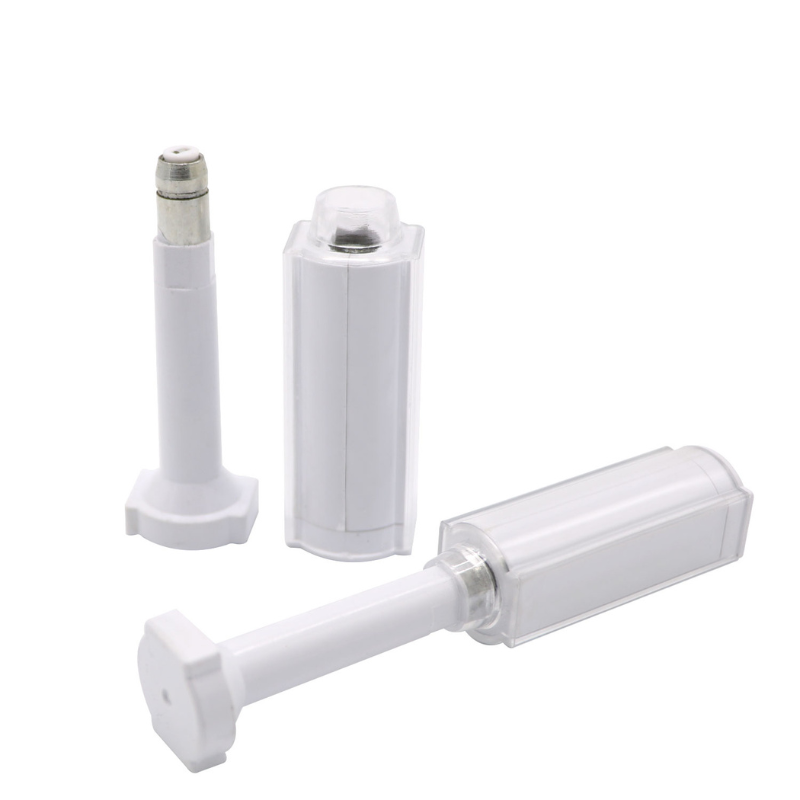
Comprehensive Applications of RFID Tags: A Technological Perspective
Table of Contents
How RFID Technology Is Revolutionizing Retail, Logistics, Healthcare & More
In this guide, we’ll explore the top applications of RFID tags, supported by real-world examples and tips on choosing the right tag for your industry.
What Are RFID Tags?
RFID tags are small electronic devices that use radio waves to transmit data to a nearby reader. Each tag contains a microchip and antenna, enabling it to carry a unique identifier (and in some cases, user-programmed data).
Tag types include:
- UHF (Ultra High Frequency): Long-range, used in logistics, warehouses
- HF (High Frequency): Secure and short-range; ideal for ID, payments, libraries
- NFC (Near Field Communication): Subset of HF, smartphone-compatible
In this article, we’ll explore the most impactful applications of RFID tags across supply chain, retail, healthcare, transportation, and more.
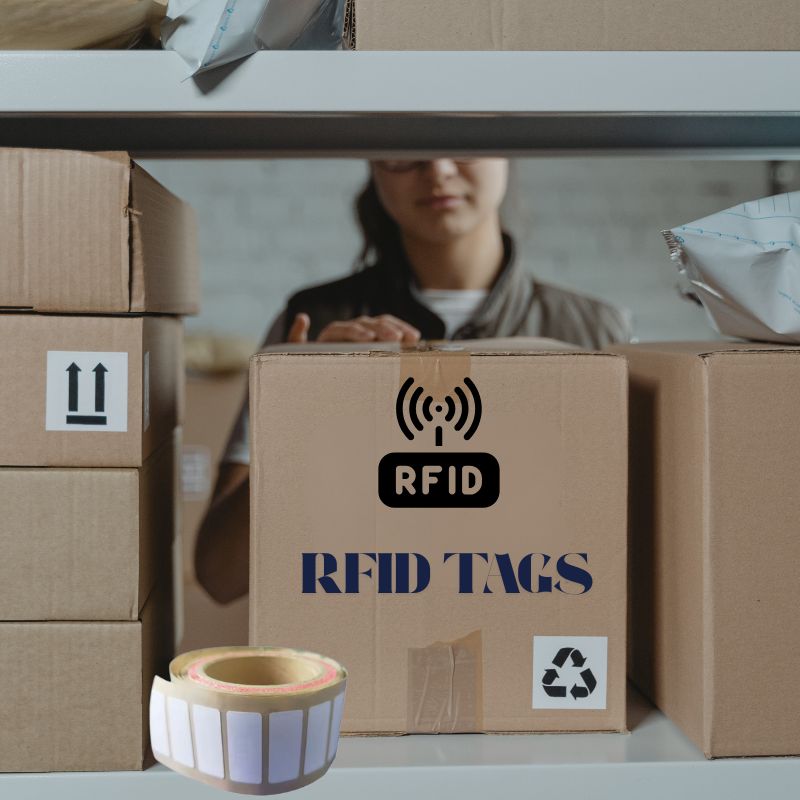
Real-World Applications of RFID Tags
Retail & Apparel
RFID is revolutionizing the retail and fashion industry, delivering real-time inventory visibility, anti-theft protection, and seamless omnichannel integration.
Key Applications:
- Item-Level Tagging: Tag each garment or product for precise inventory management.
- Stock Replenishment: Automated alerts when shelf stock is low.
- Anti-Theft (EAS) Integration: Combine UHF tags with security gates.
- Faster Checkout: Enable self-checkout with RFID readers.
- Omnichannel Fulfillment: Use RFID to locate in-store stock for BOPIS (Buy Online, Pick Up In Store).
Benefits:
- 98%+ inventory accuracy
- Reduced shrinkage and theft
- Improved customer satisfaction
Recommended Tag Types:
- UHF RFID stickers/inlays (attach to hang tags or labels)
- Washable fabric tags for reusability and longevity
- Hard tags for high-value items (jackets, shoes)
Logistics & Supply Chain
In logistics, RFID enables real-time tracking of goods, pallets, and containers as they move through warehouses, trucks, and distribution centers.
Key Applications:
- Pallet & Carton Tracking: Speed up inbound and outbound processing.
- Dock Door Automation: Passive UHF tags trigger reads on entry/exit.
- Cold Chain Monitoring: Track temperature-sensitive shipments.
- Container & Asset Location: Prevent the misplacement of high-value items.
Benefits:
- Faster check-ins/outs
- Minimized shipping errors
- Reduced labor costs
Recommended Tag Types:
- UHF RFID hard tags for reusable pallets
- Rugged on-metal tags for containers
- Printable UHF inlays for carton-level tracking
Healthcare & Hospitals
RFID in healthcare improves patient safety, asset management, and compliance. It enables accurate, real-time identification and traceability.
Key Applications:
- Patient Wristbands: Track medical history, allergies, and treatments.
- Asset Tracking: Locate wheelchairs, pumps, and mobile devices.
- Medication Monitoring: Prevent drug mix-ups and track expiration dates.
- Access Control: Secure staff-only areas and medical storage.
Benefits:
- Reduced medical errors
- Faster emergency response
- Better asset utilization
Recommended Tag Types:
- HF wristbands (ISO 14443A) for patient IDs
- UHF asset tags for equipment
- Tamper-proof labels for pharmaceuticals
Manufacturing & Industrial
RFID ensures product traceability, streamlines processes, and reduces downtime with factories’ real-time WIP (Work-in-Progress) monitoring.
Key Applications:
- Tool and Part Tracking: Avoid production halts due to missing components.
- WIP Monitoring: Track items as they move across production stages.
- Compliance & QA: Document testing, approvals, and certifications.
- Predictive Maintenance: Monitor machine usage and servicing schedules.
Benefits:
- Improved productivity and visibility
- Reduced downtime
- Data-driven decision-making
Recommended Tag Types:
- High-temperature UHF hard tags for harsh environments
- On-metal tags for tools and machinery
- Embedded tags for product authentication
Events, Entertainment & Access Control
RFID enhances attendee experience, improves security, and opens new revenue streams in event environments.
Key Applications:
- Access Control: Issue NFC-enabled wristbands or badges for secure, contactless entry.
- Cashless Payments: RFID enables food, drink, and merchandise purchases.
- Real-Time Analytics: Track attendee flow and behavior.
- Personalized Engagement: Offer customized content or discounts triggered by tag scans.
Benefits:
- Reduced queues and fraud
- Increased revenue per attendee
- Enhanced brand experience
Recommended Tag Types:
- NFC wristbands (silicone, woven, or disposable)
- Custom-printed RFID badges
- NTAG213/215 stickers for mobile-friendly engagement
Libraries & Education
Schools, universities, and public libraries use RFID to modernize book management, improve security, and streamline operations.
Key Applications:
- Book Tagging: RFID labels on books enable fast self-checkout/check-in.
- Automated Inventory: Conduct full library audits in minutes.
- Student ID & Access: Use RFID ID cards for attendance, lockers, printing, and room access.
- Canteen and Campus Payments: Cashless systems using student cards or wristbands.
Benefits:
- Lower staff workload
- Accurate, real-time cataloging
- Enhanced student experience
Recommended Tag Types:
- HF RFID stickers for books (ISO15693 or ISO14443)
- PVC ID cards with MIFARE Classic or NTAG213 chips
- Silicone wristbands for younger students or gym access
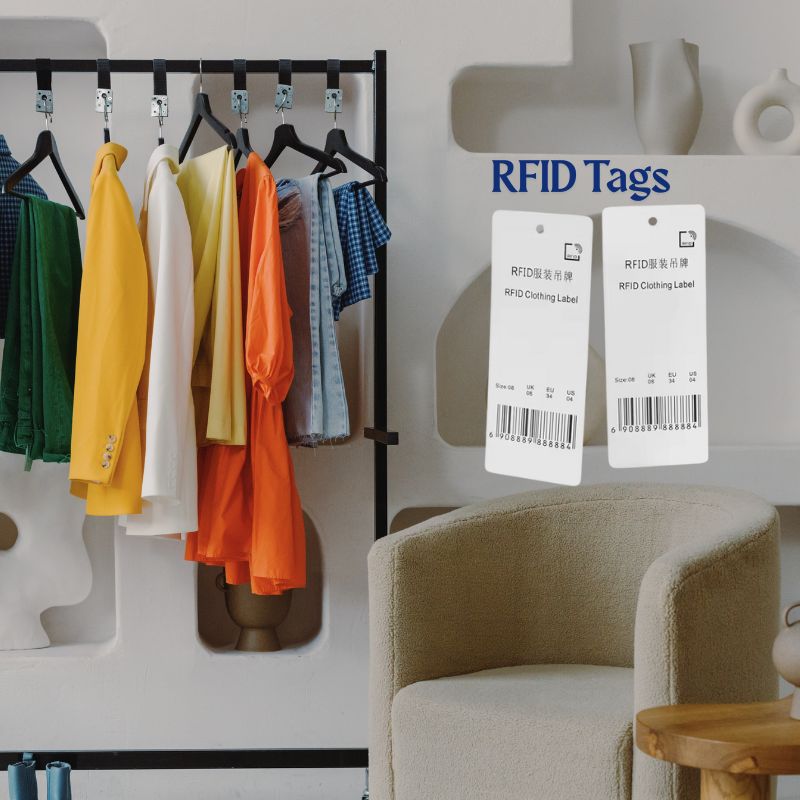
Benefits of RFID Across All Sectors
RFID technology offers universal benefits across industries — from retail and logistics to healthcare, manufacturing, education, and events. Regardless of the application, organizations that implement RFID experience improvements in accuracy, automation, security, and efficiency.
Here’s a detailed breakdown of the top benefits RFID delivers in nearly every sector:
1. Contactless, Fast, and Efficient Operation
RFID tags are read wirelessly — no line-of-sight or manual scanning is required. This makes operations:
- Faster: Items can be scanned in bulk within seconds
- Safer: Contactless technology is ideal for hygiene-sensitive environments
- More efficient: Reduces human errors in check-ins, checkouts, and logging
Example: A retail store using handheld UHF scanners can perform a full inventory count in under 30 minutes vs. hours using barcodes.
2. Real-Time Tracking and Visibility
RFID provides instant visibility into the location and status of assets, people, or products. It enables:
- Accurate, live inventory monitoring
- Improved asset utilization (e.g., tools, equipment, vehicles)
- End-to-end supply chain traceability
- Location-based alerts or geofencing triggers
In logistics, RFID tags enable real-time tracking of shipments, pallets, or containers — improving delivery accuracy and reducing loss.
3. Enhanced Security and Authentication
RFID adds a layer of digital security that barcodes and traditional ID cards can’t match. Features include:
- Unique EPC or UID codes that prevent duplication
- Encrypted data or password-protected tags (e.g., MIFARE DESFire)
- Access control and anti-counterfeiting measures
In healthcare, patient wristbands with encrypted RFID ensure only authorized staff can access patient data.
4. Automation and Labor Cost Reduction
RFID reduces dependency on manual processes by enabling automation in:
- Inventory audits
- Access control
- Attendance tracking
- Product assembly verification
- Equipment check-in/check-out
In manufacturing, RFID-enabled WIP tracking automates status updates and reduces production delays caused by misplaced items.
5. Long-Term Cost Savings
Though RFID implementation has upfront costs, it often delivers long-term ROI through the following:
- Reduced shrinkage or theft
- Lower labor costs
- Fewer errors and returns
- Less lost or misplaced inventory
- Faster operational cycles
Example: A warehouse that replaces barcode scanning with RFID reduces counting time by 80%, saving hundreds of labor hours per month.
6. Reusability and Durability
Many RFID tags — especially UHF hard tags or silicone wristbands — are designed to be reusable and resistant to:
- High temperatures
- Water and chemicals
- Physical wear and tear
- Outdoor conditions
RFID is especially valuable in rugged environments like construction, manufacturing, and logistics.
7. Data Accuracy and Reporting
Because RFID automates data capture, minimizes human errors, and ensures accurate logging. That leads to:
- Trustworthy analytics and audits
- Regulatory compliance (e.g., in pharma and aerospace)
- Data-driven decision-making for process improvement
Integration with ERP or WMS systems allows RFID data to power dashboards, alerts, and predictive maintenance.
8. System Integration and Scalability
RFID solutions integrate with existing platforms, including:
- ERP (e.g., SAP, Oracle)
- WMS (Warehouse Management Systems)
- CRM and HR systems
- Access control hardware and cloud dashboards
And they can scale easily — from tagging a few hundred items to millions.
9. Improved Customer Experience
Whether it’s shorter wait times, faster checkout, or smarter interactions, RFID enhances how customers engage with your brand:
- Tap-to-pay or tap-to-enter experiences
- Reduced stockouts in retail
- Personalized event activations via RFID wristbands
- Real-time product lookup using mobile apps and NFC
10. Supports Sustainability Initiatives
RFID helps companies reduce waste and improve resource efficiency by:
- Preventing over-ordering or overproduction
- Supporting reverse logistics and returnable packaging
- Enabling accurate lifecycle tracking of reusable assets
In fashion, RFID enables brands to track garments from factory to resale, aligning with circular economy goals.
Summary: Why RFID Is a Game-Changer Across Industries
From inventory and access control to compliance and customer engagement, RFID is no longer a “nice-to-have” — it’s a must-have technology for future-ready businesses.
- Reduces costs
- Improves accuracy
- Saves time
- Enhances security
- Enables real-time visibility
How to Choose the Right RFID Tag
7 Key Factors to Consider Before Selecting Your RFID Solution
Choosing the right RFID tag is crucial for performance, reliability, and return on investment. The “right” tag depends on your specific use case, including the environment, material, read range, chip type, and application goals.
Below is a step-by-step guide to help you select the ideal RFID tag for your needs.
1. Define Your Application
Start by clearly understanding what you’re tagging and why.
Ask:
- Are you tracking inventory, assets, people, or documents?
- Do you need real-time location tracking or periodic scans?
- Is this for access control, payment, authentication, or compliance?
Example use cases:
- UHF tags for warehouse pallet tracking
- NFC tags for mobile-enabled product interaction
- HF cards for employee access control
2. Evaluate the Environment
Heat, cold, moisture, metal, chemicals, and dust can affect RFID tag performance. Choose tags that are engineered to survive in your specific environment.
Environmental conditions to assess:
- Indoor vs. outdoor use
- Exposure to water, chemicals, or UV
- Presence of metal or liquids (which can disrupt signals)
- Temperature extremes or high-humidity areas
Recommended:
- On-metal tags for metal surfaces
- Encapsulated tags for water/chemical resistance
- High-temp tags for industrial or automotive use
3. Choose the Right Frequency Band
Different RFID frequencies offer different capabilities in terms of range, speed, and compatibility.
| Frequency | Use Case | Range | Example Tags |
|---|---|---|---|
| LF (125 KHz) | Animal tracking, basic access control | ~10 cm | EM4200, TK4100 cards |
| HF (13.56 MHz) | Access control, payment, libraries | ~1–10 cm | MIFARE, NTAG213/216 |
| UHF (860–960 MHz) | Logistics, inventory, asset tracking | ~1–10+ meters | UCODE 8, Monza R6 inlays |
| NFC (subset of HF) | Smartphone interaction, marketing | ~5 cm | NTAG series, NXP chips |
4. Material Compatibility & Mounting Surface
The surface you’re tagging impacts tag selection and performance.
Common surfaces:
- Metal → Requires special on-metal tags
- Plastic → standard inlays or hard tags work
- Wood or cardboard → Use adhesive label tags
- Human skin (for wristbands) → Use flexible silicone/NFC materials
Mounting methods include:
- Adhesive
- Embedded (in plastic or rubber)
- Rivet or screw-on
- Zip tie or epoxy
5. Select the Right Chip Type
The chip inside the RFID tag determines how much data it can store, how fast it communicates, and whether it’s read-only or rewritable.
| Chip Type | Use Case | Memory |
| NTAG213/215/216 | NFC applications, tap-to-launch, marketing | 144–888 bytes |
| MIFARE Classic/DesFire | Secure access control & transport | 1K–8K bytes |
| UCODE 8 / Monza R6 | UHF logistics & retail tracking | EPC only |
| EM4200 / TK4100 | Low-cost access cards | Read-only |
6. Decide on Tag Form Factor
Choose a format that matches your item’s shape, usage frequency, and aesthetic needs.
Common RFID tag formats:
- Inlays & Stickers: Cost-effective for cartons, packaging, books
- PVC Cards: Ideal for ID badges, access, and loyalty
- Keyfobs: Durable and portable, great for members or staff
- Wristbands: Events, hospitals, gyms
- Hard Tags: Long-lasting, rugged, industrial use
- Nail Tags / Bolt Tags: Embedded in trees, tires, or cement
For branding, many tags can be custom-printed with your logo or data.
7. Consider Encoding & Integration Requirements
Will your RFID tags need to be pre-encoded or programmed during manufacturing?
Questions to ask:
- Do you need pre-printed serials, barcodes, or QR codes?
- Will the tags be encoded with EPC, UID, or custom data?
- Are you integrating with an ERP, POS, WMS, or mobile app?
- Do you need a middleware or SDK for data sync?
Most vendors (like us) offer turnkey solutions, including printing, encoding, and integration support.

Final Thoughts: Why RFID Is a Strategic Asset
RFID is no longer a “nice-to-have”—it’s a strategic differentiator for businesses aiming to:
- Automate operations
Cut costs - Improve accuracy
- Delight customers
- Ensure compliance
- Future-proof growth
Whether you’re managing 10,000 items in a warehouse, tracking hospital staff and equipment, or selling high-value goods, RFID tags are the foundation of digital transformation.
The businesses leading tomorrow are investing in RFID today.
Ready to Implement RFID in Your Business?
Explore how RFID can revolutionize your operations.
📩 Request a Free Sample or Custom Quote
📱 Or message us directly on WhatsApp: +86 138 2318 6864
OEM support | Custom encoding | Global delivery
FAQs about RFID Tags
What are the main types of RFID tags?
There are three primary types of RFID tags based on frequency:
1. Low Frequency (LF) – ~125 KHz
- Short range (up to 10 cm)
- Used for animal tracking, basic access cards
2. High Frequency (HF) / NFC – 13.56 MHz
- Range: 1–10 cm
- Used for smart cards, mobile payments, library systems
3. Ultra High Frequency (UHF) – 860–960 MHz
- Long range (up to 10 meters)
- Ideal for logistics, warehousing, manufacturing
Each tag type offers different read ranges, speeds, and use-case compatibilities.
Can RFID tags be used on metal or liquids?
Yes — but with special considerations.
Due to signal interference, standard RFID tags often perform poorly when mounted on metal surfaces or liquid containers. For these use cases, you need:
- On-metal RFID tags (with ferrite backing or shielding)
- Encapsulated hard tags for wet, harsh, or metallic environments
- Custom-optimized tag designs for container tracking, IV bags, etc.
Many vendors offer metal-compatible UHF and HF tags designed for these environments.
How far can an RFID tag be read?
Read range depends on the tag type, frequency, antenna size, and environment:
| Tag Type | Frequency | Approx. Range |
| LF | 125 kHz | Up to 10 cm |
| HF/NFC | 13.56 MHz | Up to 10–15 cm |
| UHF | 860–960 MHz | 1 to 10+ meters |
| Active | Varies | Up to 100 meters+ |
UHF tags provide the best read distance for large-scale inventory and logistics systems.
What’s the difference between RFID and NFC?
NFC (near-Field Communication) is a subset of HF RFID. It operates at 13.56 MHz and is designed for short-range, two-way communication—typically up to 4 cm.
| Feature | RFID | NFC |
| Communication | One-way (reader → tag) | Two-way (reader ↔ phone/tag) |
| Range | Up to 10 meters (UHF) | Up to 4 cm (NFC) |
| Use Cases | Inventory, access, logistics | Mobile payments, ticketing, marketing |
| Devices | Needs reader hardware | Works with smartphones |
NFC is ideal for consumer-facing applications, while RFID covers industrial and enterprise use cases.
How many RFID tags can be read at once?
Modern RFID systems can read hundreds of tags per second, depending on:
- Reader type and protocol (EPC Gen2)
- Antenna range and power
- Tag spacing and orientation
- Environmental interference
UHF systems with multi-antenna portals are ideal for bulk scanning (e.g., warehouse dock doors, factory floors).
How much do RFID tags cost?
Pricing depends on:
- Chip type (NTAG213, Monza R6, UCODE 8, etc.)
- Tag format (sticker, card, hard tag, key fob)
- Frequency and read range
- Customization (printing, encoding, adhesive)
General cost range:
- Passive RFID sticker tag: $0.05–$0.25 USD
- PVC RFID card: $0.20–$0.60 USD
- Durable hard tag or anti-metal: $1.00–$5.00+ USD
- Active RFID tag: $10–$50+ USD
Bulk orders and OEM branding can significantly reduce per-unit cost.
Can RFID tags be reused?
Yes — most RFID tags, especially hard tags, cards, and wristbands, are rewritable and reusable.
You can:
- Re-encode data
- Reset or overwrite UIDs (depending on chip type)
- Move durable tags between assets or users
Disposable tags (e.g., printed inlays or event wristbands) are meant for single use. Choose the format based on project lifecycle and cost considerations.
Comments
Hot Products
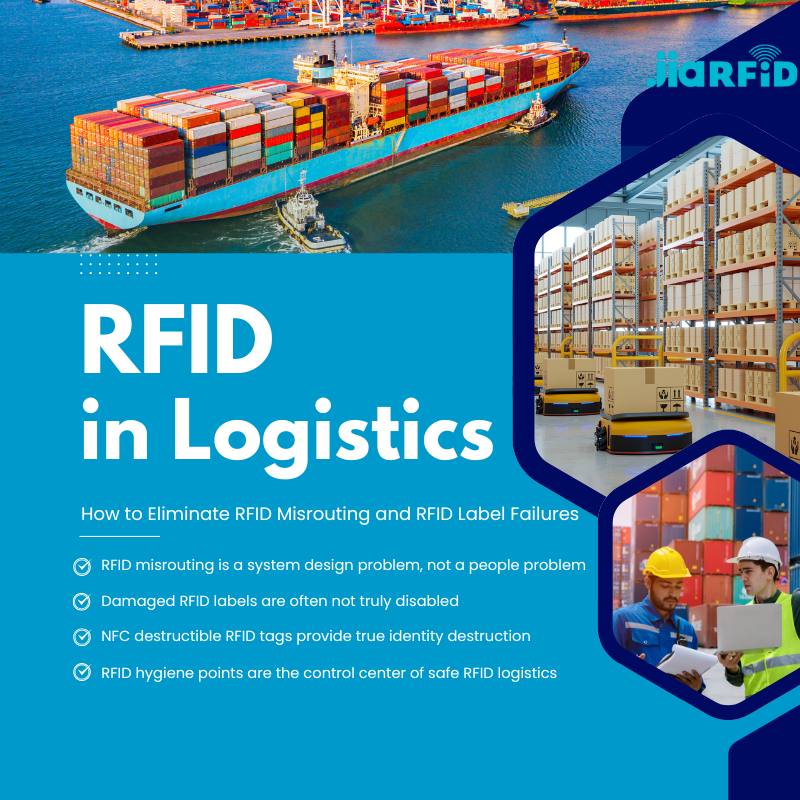
RFID in Logistics: How to Eliminate RFID Misrouting and RFID Label Failures
RFID in logistics is more than just a tool to speed up processes. It has become a key part of how modern supply chains operate.
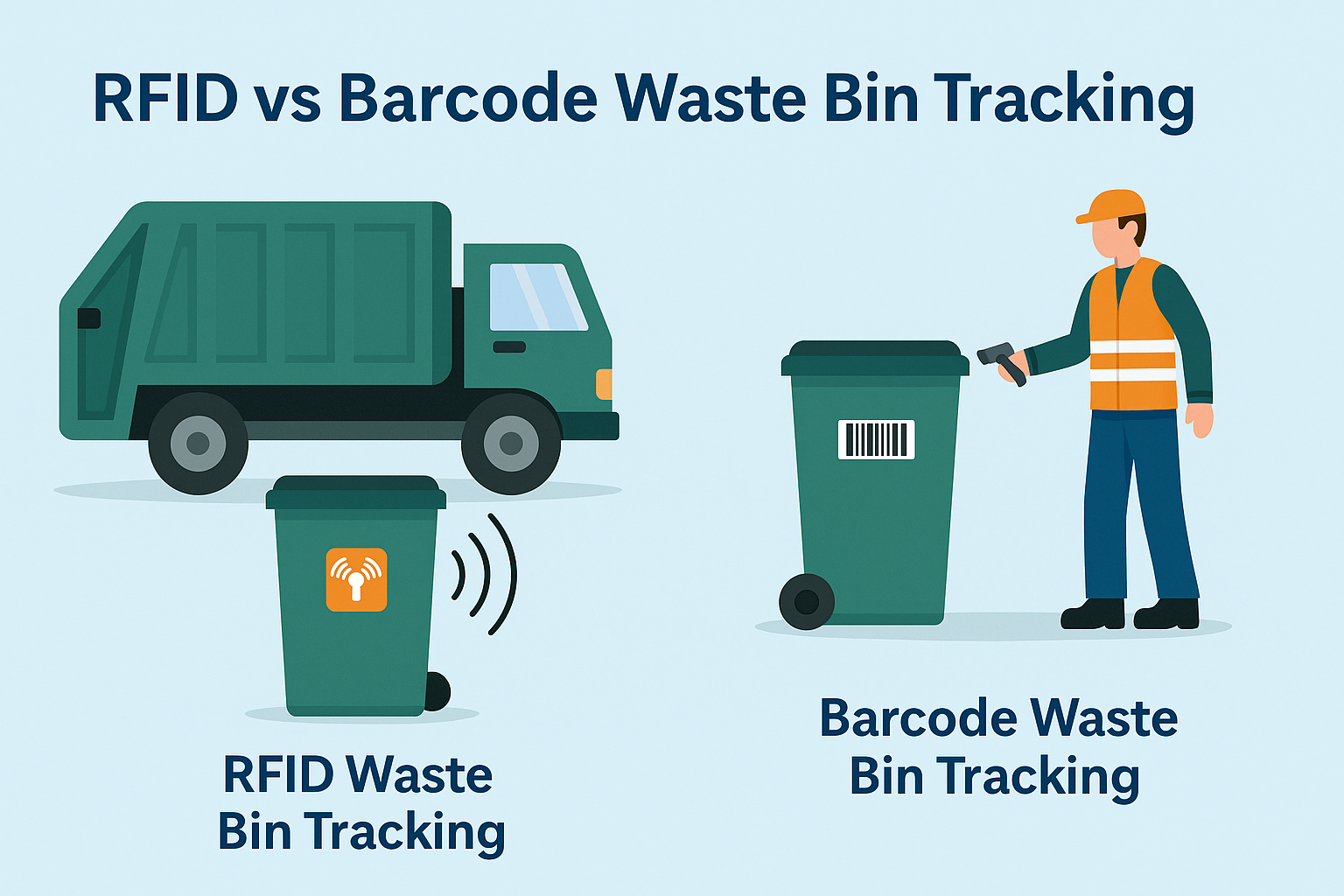
What Is RFID Waste Management
Imagine a city where every trash bin speaks — not literally — but through a tiny chip that tells the system when it’s full, when it’s emptied, and where it went. That’s what RFID waste management is doing today.
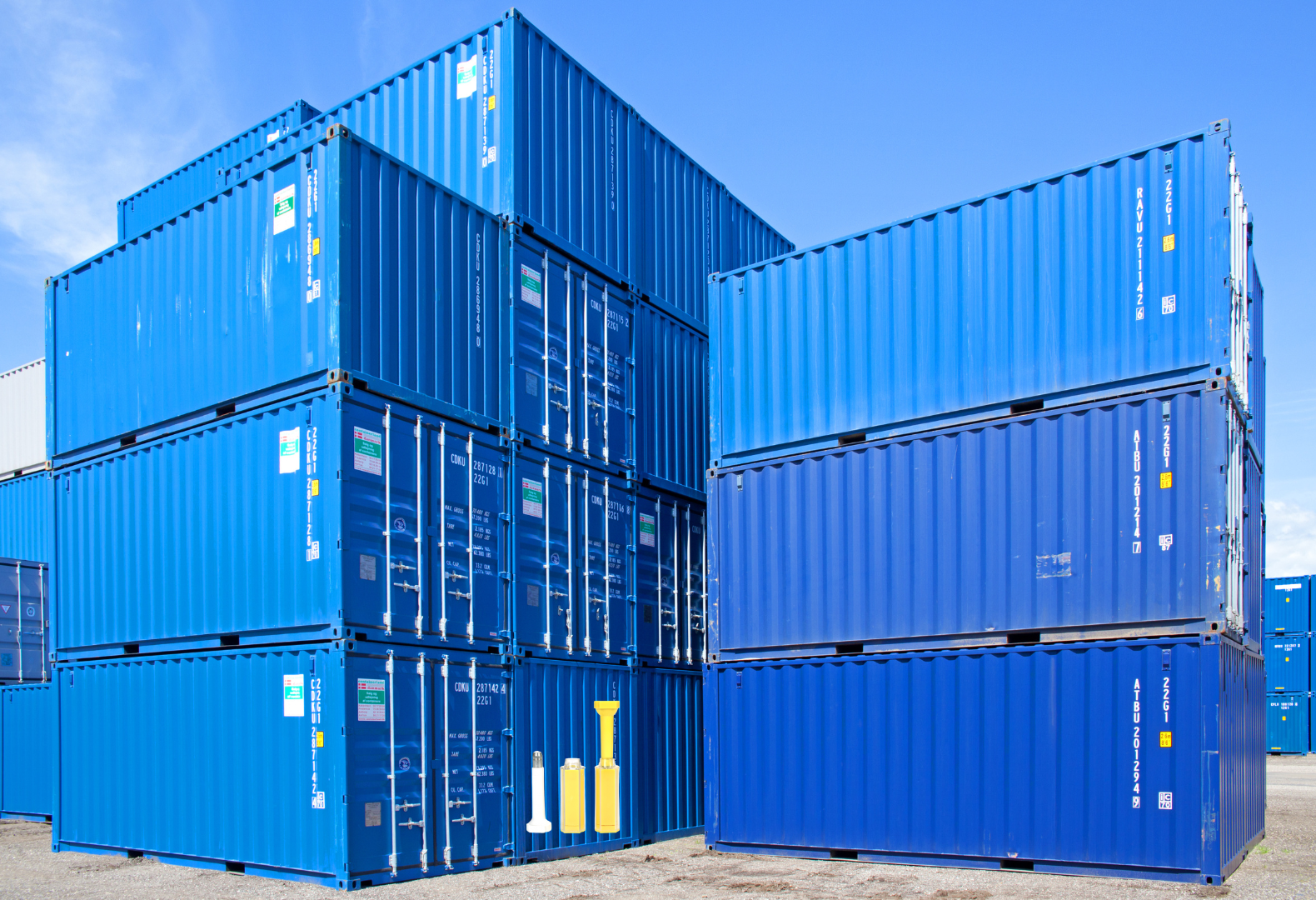
What are Bolt Seals and their Applications? | Complete Guide
In global trade and logistics, bolt seals play a crucial role in ensuring cargo security and compliance. These small but powerful devices are designed to lock shipping containers, trailers, and cargo doors with a tamper-evident mechanism.

What is an RFID Card Protector? Benefits, Use Cases, and Buying Guide
RFID technology (Radio Frequency Identification) is everywhere: in your credit cards, ID badges, transit passes, hotel room keys, and more. It offers speed and convenience, but it also opens the door to a new kind of digital theft called “skimming.” That’s where an RFID card protector comes in.

RFID Wristbands for Events: Bulk Buying Guide for Organizers
RFID wristbands for events are becoming the go-to solution for organizers who need faster entry, fraud prevention, and cashless payments at concerts, festivals, and sports venues. Unlike paper tickets or QR codes, these smart wristbands use embedded chips to streamline access, secure transactions, and improve the guest experience.
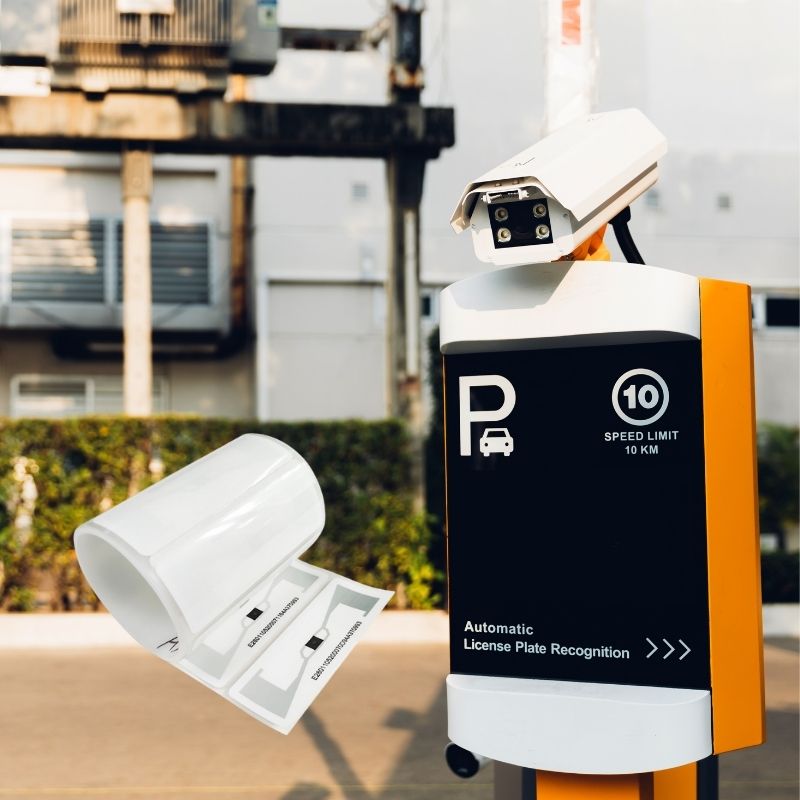
How RFID Tag on Windscreen Improves Vehicle Access Control and Toll Systems
In today’s fast-paced world, vehicle identification needs to be quick, secure, and contactless. An RFID Tag on the Windscreen provides exactly that — a reliable way to manage toll collection, parking, and gated access without stopping vehicles.
Tags
RELATED BLOGS

RFID in Logistics: How to Eliminate RFID Misrouting and RFID Label Failures
RFID in logistics is more than just a tool to speed up processes. It has become a key part of how modern supply chains operate.

What Is RFID Waste Management
Imagine a city where every trash bin speaks — not literally — but through a tiny chip that tells the system when it’s full, when it’s emptied, and where it went. That’s what RFID waste management is doing today.

What are Bolt Seals and their Applications? | Complete Guide
In global trade and logistics, bolt seals play a crucial role in ensuring cargo security and compliance. These small but powerful devices are designed to lock shipping containers, trailers, and cargo doors with a tamper-evident mechanism.



